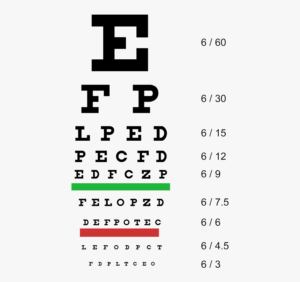Sometimes, we really think we’re challenging God with our prayer requests. Maybe He’s not caught off guard, but surely God will have to dig deep to solve our problem, heal our body, mend this heartbreak, or whatever else actually caught us off guard.
Other times, we choose not to “stress God out” with our perceived insurmountable prayer requests. We’ve forgotten all about our divine, open invitation to “come boldly before the throne of grace to find mercy and help in our time of need” (Hebrews 4:16). For some reason, the miracles that God performed in the Bible become mere fairy tales that benefitted “them” – but not us.
What in the world is going on, Team? Since when did God shrink to the level of our capabilities?
Why Our Prayer Requests Are Too Small

There’s an inverse relationship between how we see our problems and how we see God.
Remember going to the eye doctor and being asked, “Read the smallest line you can on the chart.” You muster up all the squinting you can to read that bottom line. But, if you’re having vision problems, you often come up short and have to come up to the next line or so.
How many times do we focus on the fine-print of our problems versus our E-normous Father God who reigns E-ternal? While we’re so busy majoring in the minutia of our challenges and frustrations, God sits on the throne wondering, “Do my children really know how E-asy this is for Me?”
Shift Your Focus Up to God and Away From Your Problems
Lift up your eyes, teammates. We don’t have to struggle trying to focus on every small detail of “how” God will fix it. When we walk by faith and not sight (2 Corinthians 5:7), we’ll realize that the fine print is under the authority and complete control of God.
We can ask big, bold prayers when we look up to God, seek His face, and magnify Him to be bigger than our small prayer requests.
So, What’s the Play Call?
Up your ask. Make your biggest, grandest, humongous prayer request to God – and then add some more to it lol!
Jesus made a clear distinction between man and God. In Matthew 19:26, Jesus said, “With MEN this is impossible, but with GOD all things are possible.”
So, remember whose hands your prayer requests are in. If you’re depending on yourself or somebody else to fix it, you’re setting yourself up for great disappointment. However, if you’re depending on Father God, the Creator of the whole universe, then you can rest assured that there’s nothing you can ask or think that will stress God out or make Him flinch! There is nothing too hard for God.
What have you been wanting to ask God to do, where do you need His help – but you didn’t bother to ask?
Try God with your big ask and see how small a task for God it really was!




